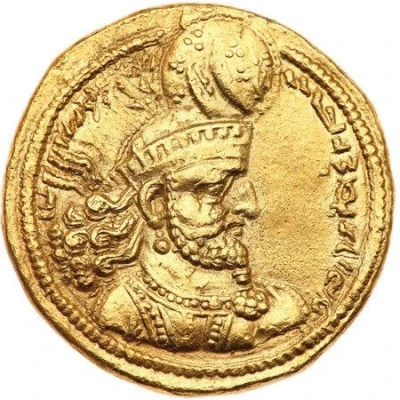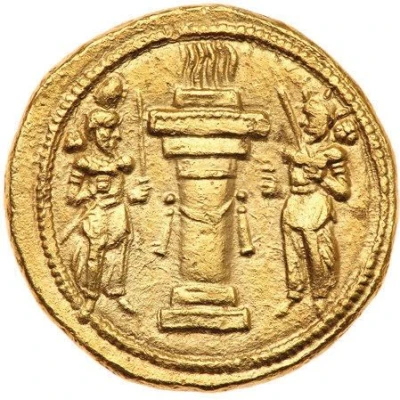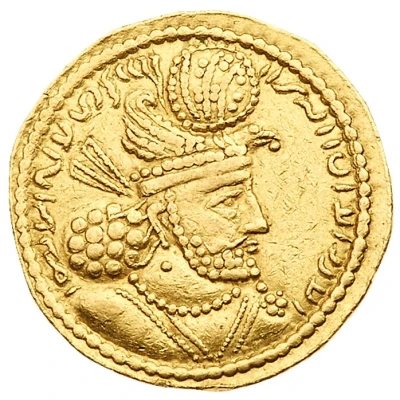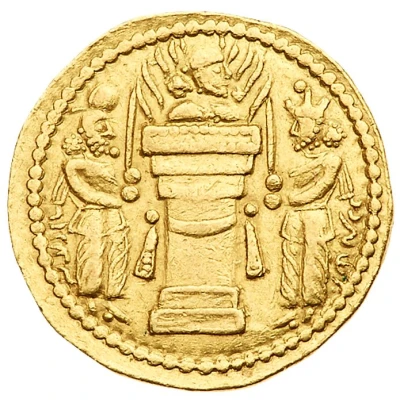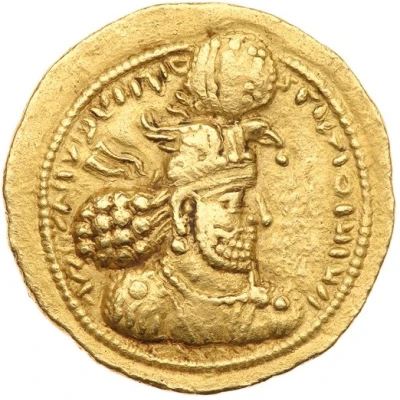
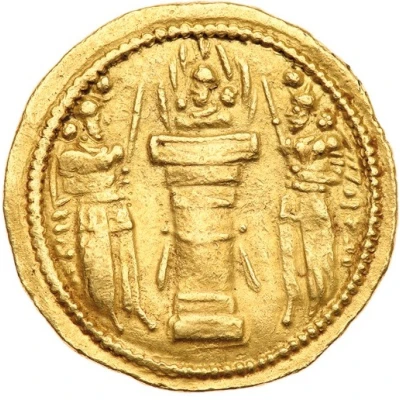

Dinar - Hormazd II type I/1a - I/1b
| Gold | 7.14 g | - |
| Issuer | Sasanian Empire (Sasanian Empire (224-651)) |
|---|---|
| Emperor | Hormazd II (302-309) |
| Type | Circulating commemorative coin |
| Years | 301-309 |
| Value | Dinar (1) |
| Currency | Dinar (224 AD-651 AD) |
| Composition | Gold |
| Weight | 7.14 g |
| Shape | Round (irregular) |
| Technique | Hammered |
| Demonetized | Yes |
| Updated | 2024-10-10 |
| Numista | N#90084 |
|---|---|
| Rarity index | 100% |
Reverse
An atasdan in the form of high column with a capitellum and base. Above the capitellum is a tounge of flame. In the flame is a bust of Ahura-Mazdah. The column is covered by ribbons. Along the sides of the atasdan there are two attendants with swords in their hands. The left-hand figure wears the crown of Hormazd II; the one on the right, the crown of Sapur I.
Pahlavi legend
Lettering: NWR ' ZY ' whrmzdy
Translation: Fire of Ohrmazd
Interesting fact
One interesting fact about the Dinar - Hormazd II (type I/1a - I/1b) coin is that it features an image of the king, Hormazd II, on one side and a fire altar on the other. The fire altar was an important symbol in Zoroastrianism, the dominant religion of the Sasanian Empire at the time. This coin was minted during a time of religious and political tension between the Sasanian Empire and the Roman Empire, and the inclusion of the fire altar on the coin may have been a way for Hormazd II to assert his religious beliefs and solidify his connection to the Zoroastrian faith.
